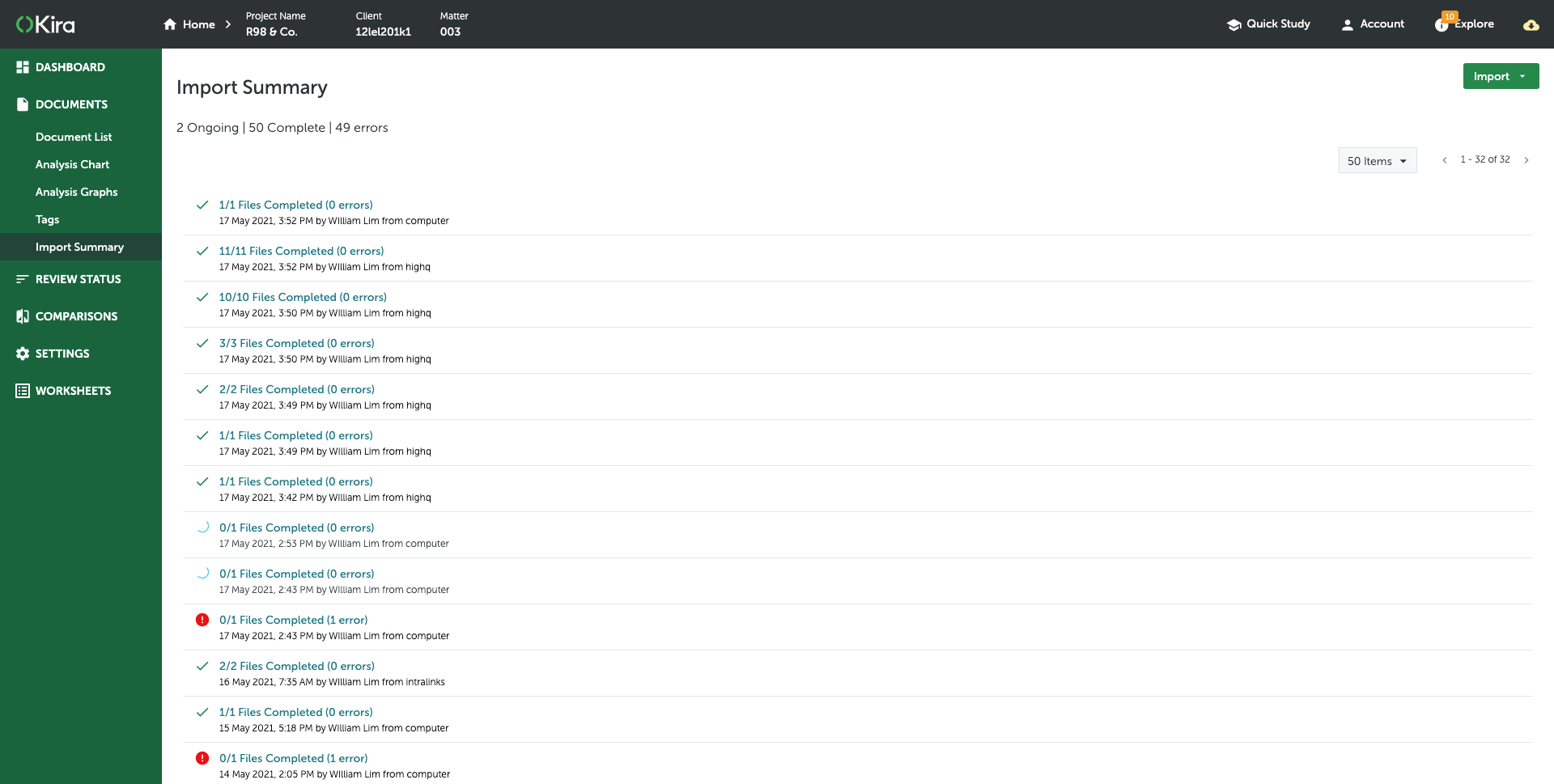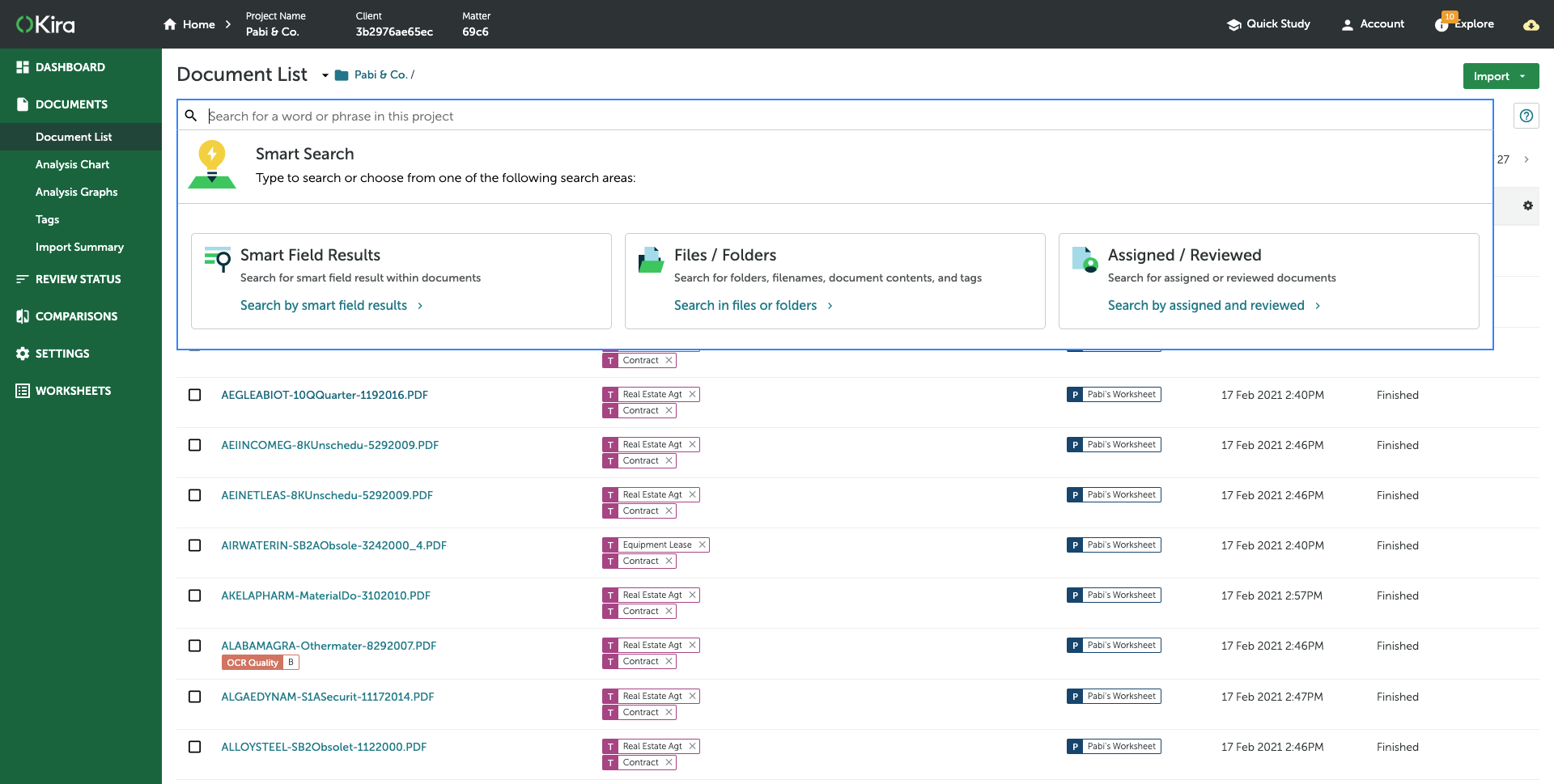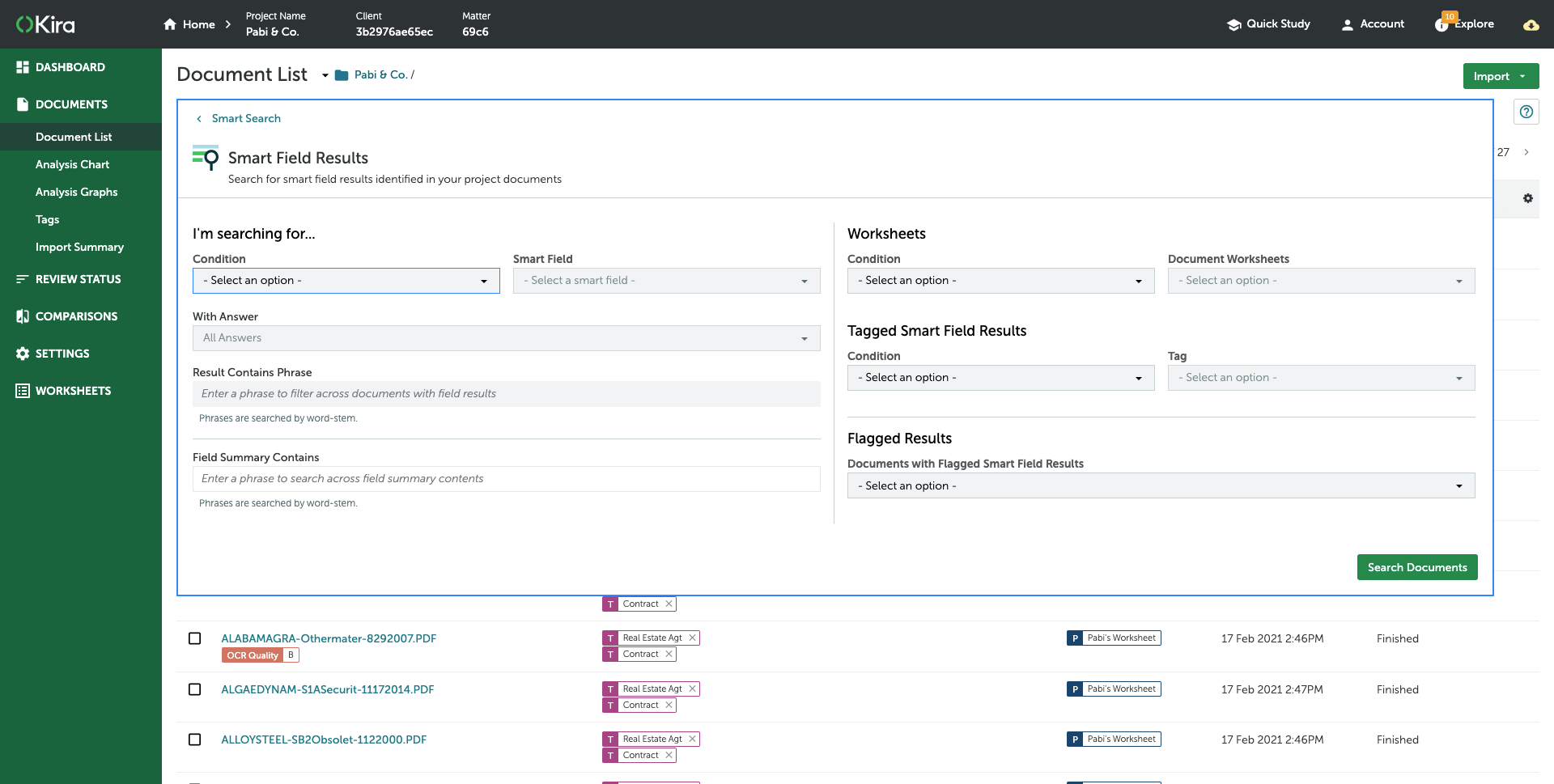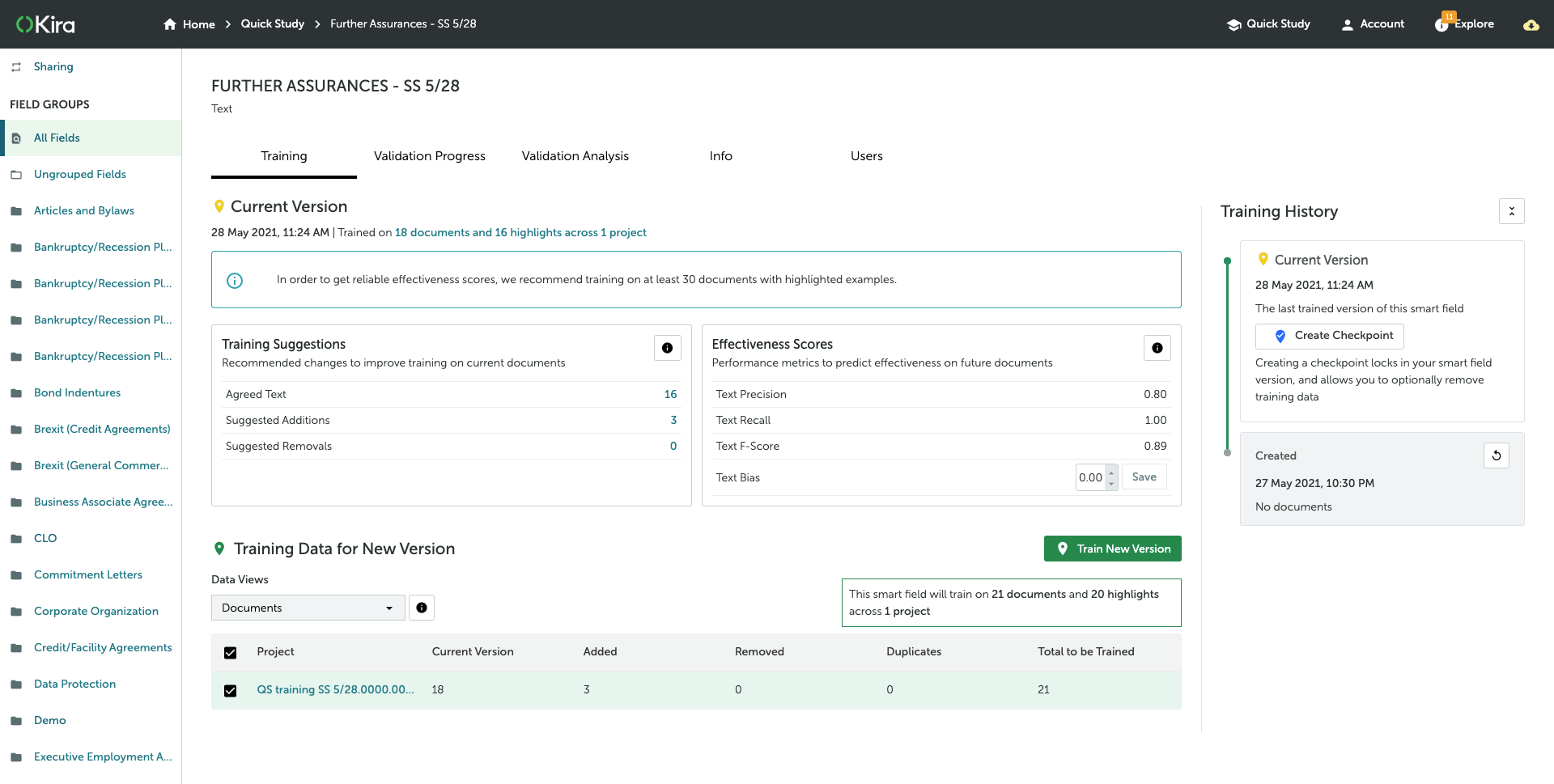Welcome to the first edition of What’s New in Kira - a new series that focuses on keeping you updated on our latest product enhancements, features and innovations. This month, we’re providing a recap of three main product enhancements that help lawyers more quickly manage and review large contract (and other document) review projects: Import Summaries, Smart Search and Quick Study. Keep reading to learn more about how Kira has improved the user experience for reviewing and analyzing documents.
Importing Documents
During many M&A due diligence and other document review projects, the documents that need to be reviewed don’t always become available at a single time but instead arrive in batches. Often the first batch is nicely organized into well structured and organized folders, but the subsequent batches tend to be more disorganized. This represents a painful part of managing contract and document reviews - knowing which documents get uploaded when. This pain point is made worse when there are documents that are corrupted, password locked, or contain other errors. When a lawyer uploads 5,000 documents but only 4,999 are successful, it can be time consuming to find the documents that failed to import.
2021 Update: Import Summary
To make it easier to keep track of what documents have been uploaded, Kira has introduced a new Import Summary page. This update allows for more efficient tracking of the overall progress of document imports, with a dedicated, easy to find page that provides improved visibility into the documents that succeeded or failed, errors, and details such as who initiated the import, when, and from where. This decreases the time spent on finding problematic documents, so that documents are not missed during reviews and reviews can be completed more efficiently. Import Summary also provides project managers an audit history of every document that has been imported in a single easy to use screen.

Reviewing Documents Using Smart Search
One goal of due diligence and other document review and analysis projects is to find and evaluate specific language, and/or clauses in a set of documents that may require further discussions and negotiations by the parties in a given transaction or project. Such language may be embedded within clauses, which are difficult to review when they can be written with dramatically different language, and projects include hundreds or thousands of documents. Kira solves that problem with its smart fields, which use AI to find and identify clauses, provisions, and data points.
To further enhance a lawyer’s ability to find specific language in a project, Kira has augmented its smart fields with a capability known as Smart Search, which allows for searching across entire documents or just within the language found by the smart fields. Also, you can search and filter based on your own inputs on documents such as summaries, tags, and flags.
2021 Update: Enhanced Smart Search Capability
Kira’s search results are optimized to return the broadest search results so that users don’t miss potentially relevant results that can come from searching for exact keywords and exact phrases. Kira instead looks for the stems of the words. For example, if a user searches for the keyword “negligently” they will also get results for “negligent” and “negligence,” as all of these words have “negligen” as their stem. This provides users more control over deciding what results are relevant and reduces the risk of something being missed.
With Kira’s search returning the broadest set of results, we’ve now enhanced our Smart Search capability to offer a new guided experience that makes it easier to narrow in and find exactly what you’re looking for in Kira when performing a search across:
- Smart Field Results;
- Files and Folders; or
- Assigned or Reviewed Documents

After selecting what you want to search across, the search can then be narrowed down even further by easily applying conditions and filters.

Training Smart Fields With Quick Study
Kira’s Quick Study feature makes it easy for legal professionals to create, train, and manage their own custom smart fields without needing to be able to code or having a background in data science. Quick Study employs the same AI that we use to train Kira’s built-in smart fields, which learns to recognize concepts and find provisions, clauses, and data points in contracts and other documents even when the wording is different from one contract to another.
2021 Update: Train Quick Study Smart Fields More Easily and Quickly
We are continually striving to make Quick Study as user-friendly and as intuitive as possible. To further enhance the Quick Study experience, we have:
- Improved Kira’s accuracy in estimating the effectiveness of Quick Study smart fields on future documents;
- Updated the explanations regarding Kira’s effectiveness scores and suggestions to improve the smart field; and
- Provided new information about the documents and highlights that have been added and removed since the last time the smart field was trained.
Further, Quick Study includes a feature called “Checkpoints” that provides a way for trainers to lock in a version of a smart field so that old documents can be deleted without affecting how the AI learns. Subsequent training can then be done based on the checkpoint and any new documents to further train the smart field.
To make it easier to see what has changed between training rounds, Kira has updated the “Training History” visual to display how many documents and highlights were included in each checkpoint.

If you have questions about any of these changes and enhancements, please email us at support@kirasystems.com.
